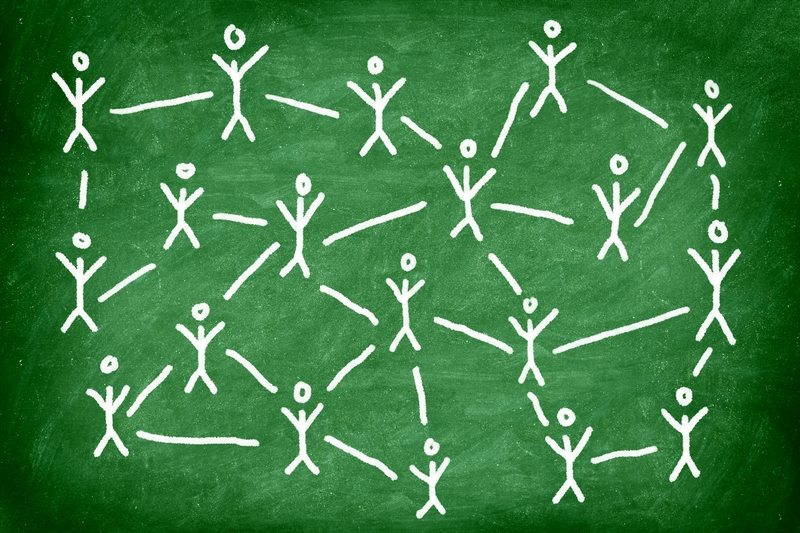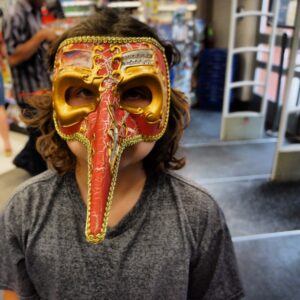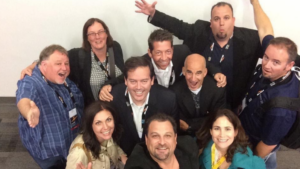As humans, we’re used to joining communities in the physical world. We coach our kid’s sports teams. We go to conferences and have co-workers. We belong to book clubs and non-profit groups seeking to learn something new or make our world a better place. Even our own families are small communities.
Most of us have online communities too. We have Facebook accounts, Twitter accounts, and watch YouTube. We surf popular sites on the Internet, have our favorite news sources and resources to make us more informed and efficient. Community is everywhere.
The development of any community empowers individuals and groups of people by delivering connection, variety, new skills and a sense of fun. The constants are a common agenda and a sense of belonging. Undoing this agenda is where communities start to dissipate or individuals create differences of opinion. When we feel we’re not being accepted, invited, or contributing to our communities, our desire to belong to that community diminishes.
The essence of any community has a leader, usually someone dedicated to helping to usher that experience with thought leadership or as a curator of knowledge through a unique experience. The job of the leader of a community to make sure everyone is heard, invited, and compelled to belong.
Sometimes, people just need to be asked.
Let’s take Lady Gaga as an example of smart community building. Although she has millions of fans in her “little monsters” community, she only engages with a small percentage of ultra engagers and strongest influencers who are invited to belong to private sub-community. She knows that it would be impossible and impractical to interact with everyone. But she does know that her superfan “little monsters” will go to great lengths to create content, artwork and memes about the superstar. If they do something extraordinary, Lady Gaga engages with them, one on one. She has learned to reward the top contributors of her community with interaction – what they want – and she is rewarded with content created by her community, artwork sold on things like t-shirts sold at the concerts, which is what she wants – a strong, active, loyal and passionate community of followers. A win/win!
Community building is an art form that is quickly evolving. Now, we see them segmented as “friendship circles” “interest circles” and “business circles”. But we will see more and more, segmented niche groups emerging, with specific ways to contribute our ideas to more thinly sliced areas of interest. Facebook is already heading in that direction, with the acquisition of Instagram and recently, What’sApp. They’re buying niche communities of interest that appeal to specific audiences (for instance Instagram and their valuable Millenial community). As more of these niche players become a part of Facebook’s universe, people socializing on their “mothership” platform could disappear forever. It could be that Facebook eventually becomes so integrated into so many separate niche app environments, that the massive social network we know today becomes irrelevant. This would be a “win/win” for Facebook as a brand – still owning their huge community universe, but providing valuable shared interest “galaxies” for small communities to share and interact more freely with others of common interest. Watch their acquisitions – in 5 years we’ll be experiencing Facebook within these apps.
We’ll also see this evolution spill into business apps, where people within brands will be able to communicate with their audiences in this way to serve, sell and market in a more intimate, customized, personal space.
The Sharing Economy (more about that in my interview with Jeremiah Owyang here) is taking our social communities into the physical world. Uber, my favorite black car service, is bridging this gap with its easy-to-use app and rating system for both drivers and passengers. But imagine, in the future, how the integration of your social behavior and personal data could make our physical world experiences more highly unique and sharable? For instance, what if the data Uber collects about you in their app (location, destination, in-car experiences, water brand preference) could be integrated with third party information like your airline rewards program or shopping preferences? What if this information could be transferred to the hotel’s check-in system seamlessly in the background, in the instant they dropped you off at the entrance. As you walked into the hotel, this information would pop up on screen and you’d be greeted by name by the front desk clerk, who also digitally awards you frequent flier points and orders up to your room your favorite water in seconds – all without you changing your behavior in the physical world. #mindblown This is where it’s headed, and community is at the core of it all.
KEY TAKEAWAY: Perpetuating strong, integrated niche communities is the future. It’s critical that experiences are connected to a community of shared interest. This keeps the conversation going and enables the community to continue to support, adapt and evolve in harmony, on and offline.







